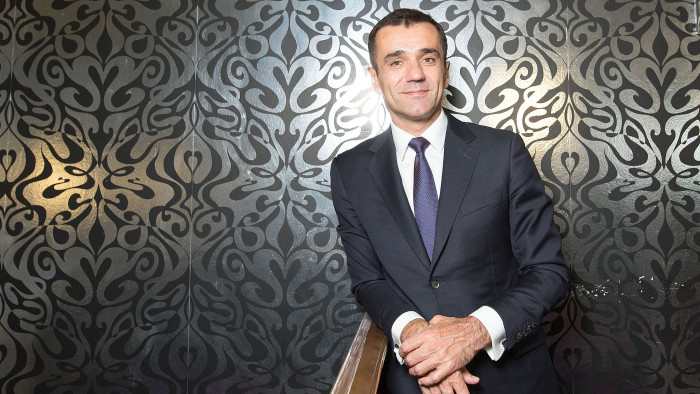Interview: Ilian Mihov, dean of Insead

Simply sign up to the Business education myFT Digest -- delivered directly to your inbox.
When it was set up in 1957, the French business school Insead had a similar goal to the European Common Market that was launched in the same year.
The aim was to breed managers who had a European rather than national outlook to exploit the new opportunities for cross-border trade.
The founder was a French-born naturalised American, Georges Doriot, who had been an influential faculty member at Harvard Business School. “His idea was to build an international school — an international school based in France,” says Ilian Mihov, Insead’s current dean. Students had to speak French, German and English.
Six decades years later, Doriot’s dream is a reality. The school topped the FT’s 2016 global MBA ranking and is proud of its cosmopolitan identity, boasting of training people to feel at home anywhere in the world. “We don’t consider ourselves French,” says Prof Mihov.
However, this statelessness is at odds with the nationalist mood of the times. The European project it accompanied is under strain. Can Insead remain quite so aloof from its host country?
French politicians tend not to be shy of grabbing a piece of local successes that can project soft power, or rayonnement, overseas, but Prof Mihov says there has been no pressure to follow a domestic agenda. It has deepened its local roots in one respect, however, through membership of a cluster of Parisian higher education institutions known as Sorbonne Universités.
The cluster is an attempt to reverse some of the fragmentation that has hampered France’s top universities internationally, while also making more of the underexploited Sorbonne name.
Prof Mihov says the partnership allows Insead faculty to collaborate with specialists they would not find in-house, such as nutritionists for work on obesity and marketing.
Sorbonne Universités talks of an ever-closer association between Insead and its other members but Prof Mihov is keen to keep collaboration at an academic level.
A full-blooded tie-up with the broader university grouping would hamper Insead’s freedom to manoeuvre, he says, arguing that the opening of its second campus in Singapore would have been tricky in a tighter alliance. “We were able to do that exactly because we were standalone. It gives you the freedom to do things.”
He feels that the cultural mix remains a strength, preparing students for working in diverse international groups. “When they arrive at Insead we put them in teams to maximise friction deliberately. So there is this French engineer with a British historian — the perfect combination for all kinds of fights.
“In the beginning they don’t like it, they complain, but over time if you ask our alumni they will say this is one of the most important experiences in the school.”
Comments